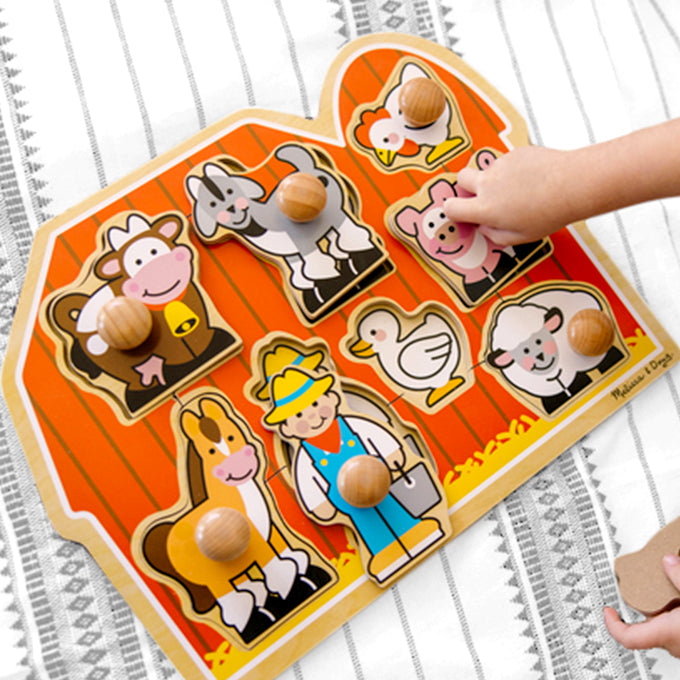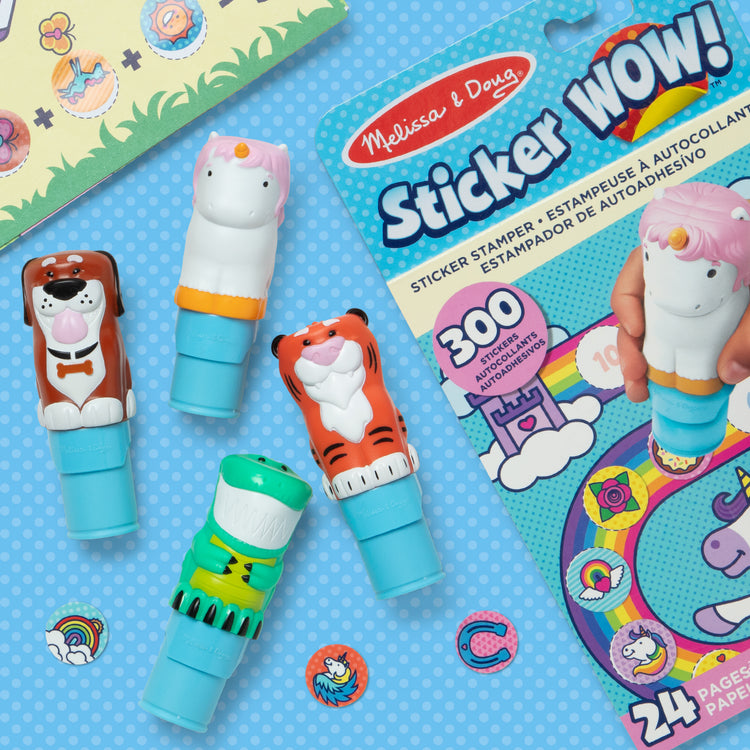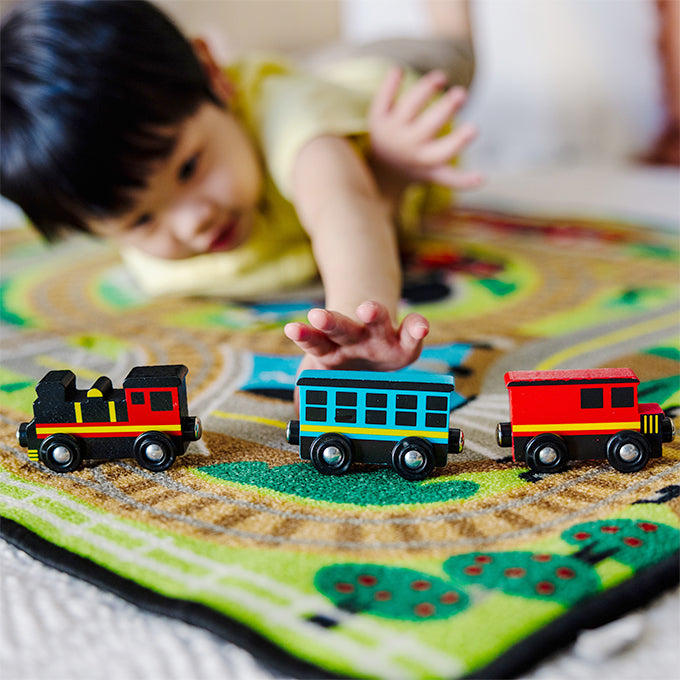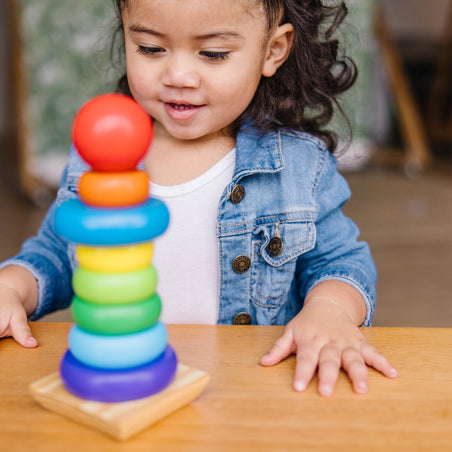Melissa & Doug recently sponsored a webinar presented by the AAP (American Academy of Pediatrics) parenting website, HealthyChildren.org. Hosted by Dr. Jennifer Shu, Medical Editor of HealthyChildren.org, the webinar featured special guest Dr. Michael Yogman, a Developmental-Behavioral Pediatrician, discussing topics such as:
- Why play is so important
- What play is — and isn’t
- Types of play
- How to work play into family life
-
Play ideas by age
Takeaways from the Power of Play Webinar
Below are some highlights from the webinar, which you can watch here:
Play Has Real Benefits
“Play has enormous benefits across the landscape of child development,” said Dr. Yogman. “It’s important to realize that it’s not frivolous; it really is brain-building. There is a real body of scientific research. It enhances social and emotional development, physical development, cognitive development, executive function, and in an era when we’re so worried about isolation and loneliness according to our Surgeon General, it encourages collaboration and cooperation both for adults and children.”
Playing with toys, engaging in physical play, spending time in nature, sharing stories, and enjoying music are all recognized as being essential to a child’s development. In fact, a new research study reveals that exposure to the arts enhances brain function and the ability to learn and develop.
Dr. Yogman emphasizes that as long as kids are active and engaged, they can find joyful play in everyday activities. Busy parents may find it difficult to fit play into their family life, but adults can focus on its joyful aspects even in small amounts of time by asking guided questions and promoting creative discussions. Balance and moderation is key.
Age-by-Age Ways to Play
Dr. Yogman reviewed the different types of play appropriate for each stage of development.
Infant
At about three or four months when babies start to coo and giggle, they learn from the social aspects of language development such as singing, counting, and laughing together. It’s also when infants become aware of cause and effect and mimic others, so taking turns with a toy is a great way to promote these developmental stages. Parents can help with their baby’s memory skills and object permanence by playing peek-a-boo or hiding a toy under a blanket. Sensory toys can enhance their sensory experience and even though they can’t yet read, they can get used to the feel of a book in their hands.
Toddler
Reading becomes important at this age. Don’t be surprised if your child gets distracted--they’ll come back to the story or activity and remember it. It’s a time for stacking blocks, sorting puzzles, and shape sorters. At this age, kids will let you know what they want and may actually narrate the action and embellish their own stories. Now that little ones are walking and running, encourage their curiosity while they explore, knowing they will come back and check in with you as their secure, home base.
Pre-school and School Age
Kids are even more active now inventing their own stories and engaging in make-believe play. This is a great time for dress-up, playing house, tag, simple board games, music, and art. You can expose them to sports in order to promote cooperation and teamwork as well as healthy exercise. Play dates offer experience being around other kids, but if your child is uncomfortable at first, let them know you’re there to help them manage and cope if they feel stuck.
Screen-time Recommendations for Kids
Screen-time is here to stay so Dr. Yogman stresses that parents set ground rules. Very young children get limited benefit from screen-time, but parents need to understand the risks and advantages as their kids get older. Stay engaged and set boundaries such as no screens at the dinner table or in the bedroom. However, video chats and interacting with others in real time can be educational as well as socially rewarding. To find out more about this important topic check out the Family Media Plan on the AAP website.
How do you know if play is working for your child? Observe them while they play. If they’re smiling, expressing joy, and are attentive, then you know you’re on the right track.
To learn more about the benefits of play, check out these Melissa & Doug blog posts:
How Play Can Help Get Kids Moving
The Power of Pretend Play
Kids Feeling Down? Here’s How Play Can Help
The Power of Problem-Solving Play
Playing With Babies: Setting the Stage for Imagination









